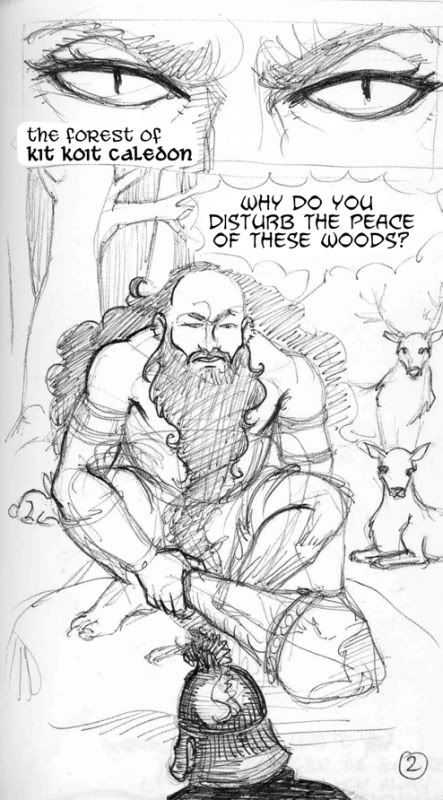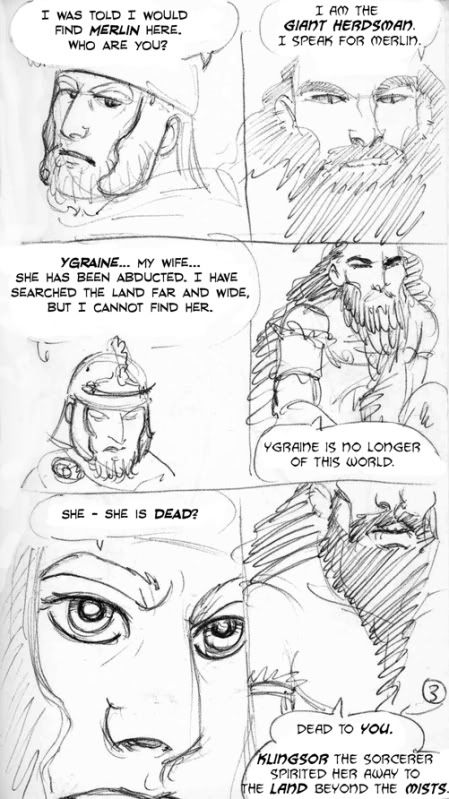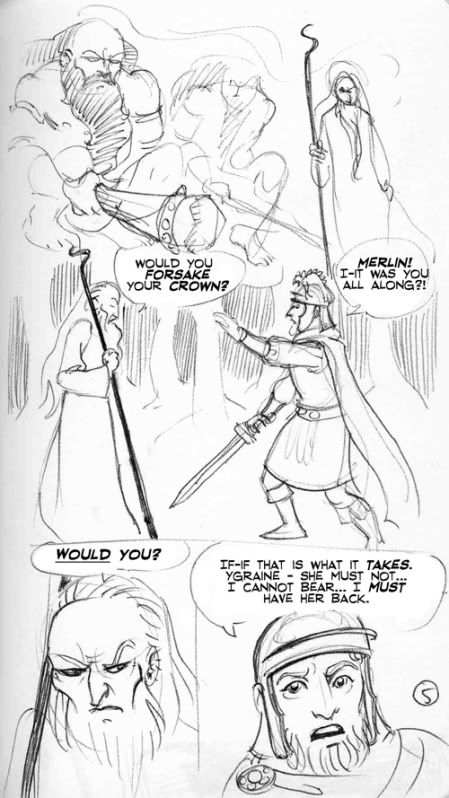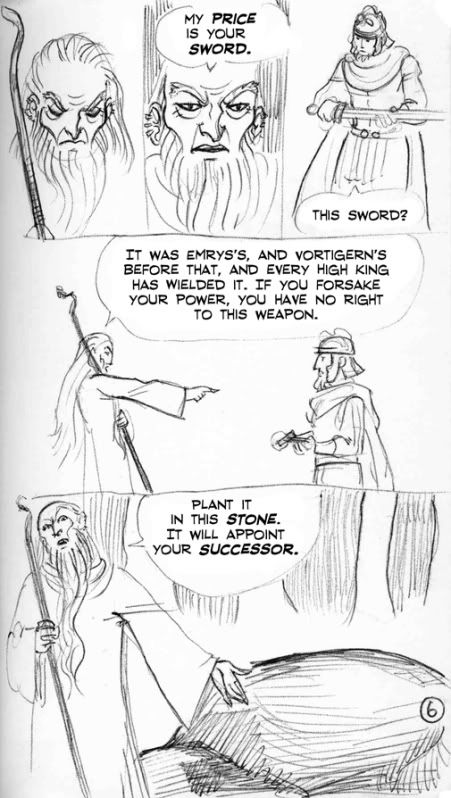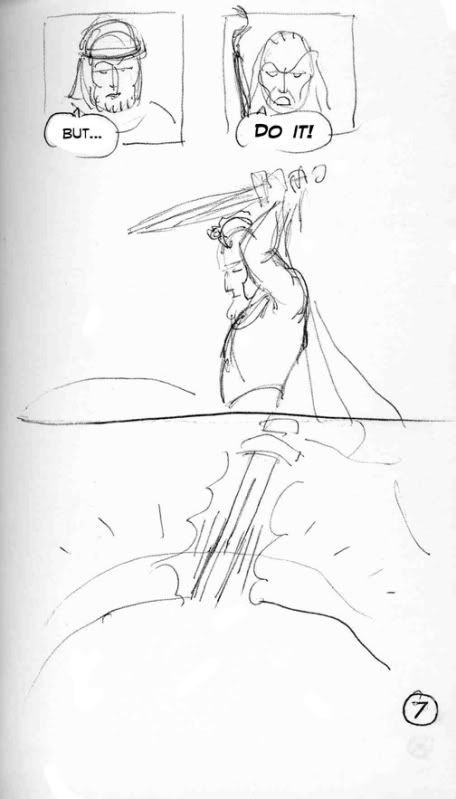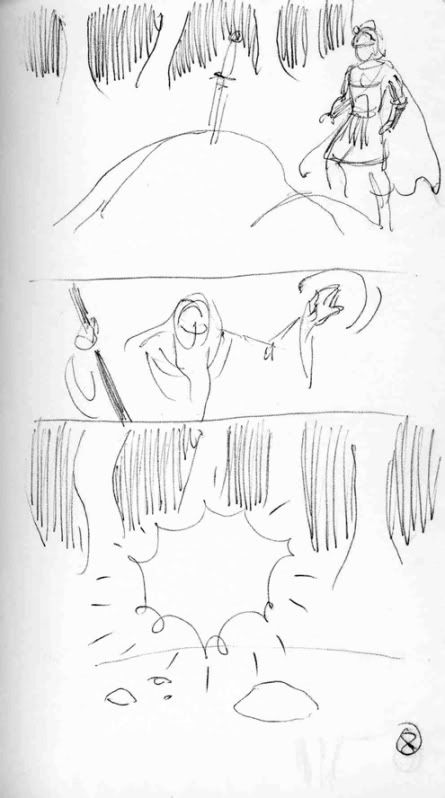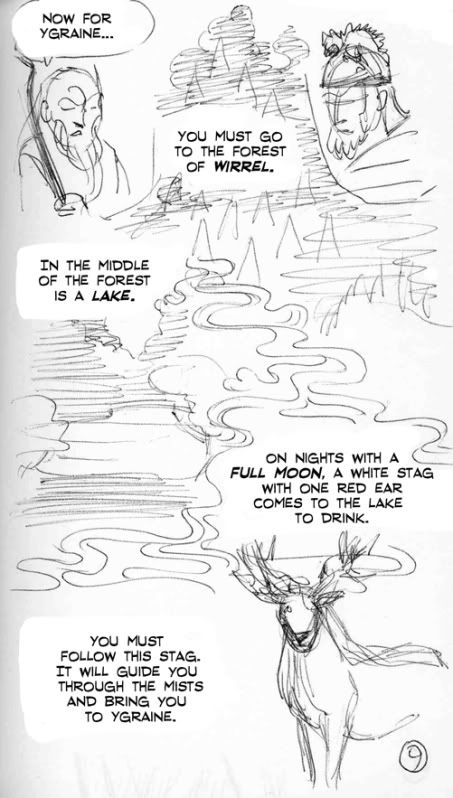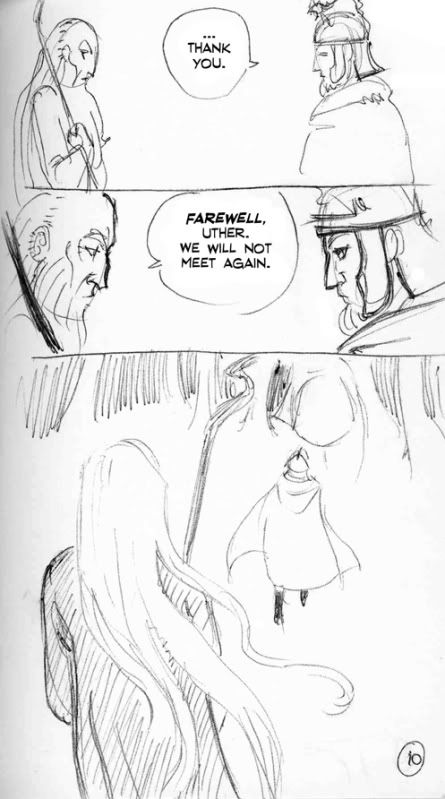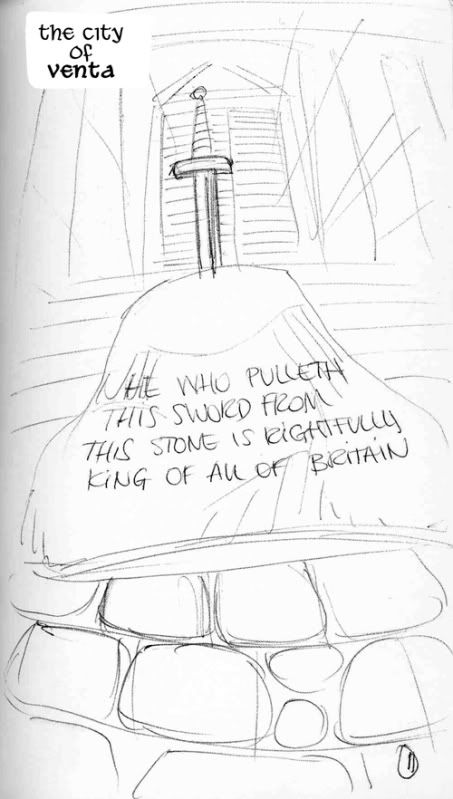"Jetzt, wo der gute Utepandragûn seinen Frieden hat... Er ist tapfer herumgeirrt, aber ich glaube kaum, daß er mich finden wollte. Das beruhte zwar auf Gegenseitigkeit, und doch, etwas weniger einig hätten wir uns diesmal schon sein dürfen."
- Adolf Muschg, Der rote Ritter (1993)

The comic is not dead. Whereas some future episodes are already getting a very definite shape, there is still a lot of sorting-out to do on others. One small step has been taken: a short bridge episode is ready. After three rewritings (you won't believe that when you see the result), I am glad that I can finally show you the eleven-page draft of The Sword of Kings. It is short, but not insignificant in the larger scheme of things.
You know the drill: constructive criticism is most welcome. I am very grateful for it and will certainly take it into account for the final version.
A few words about the current draft:
As per usual, I am posting layouts that I have been drawn on the train. They are by no means finished. The SoK drafts have been drawn with a ballpoint pen in a tiny notebook - less than half the size of the notebooks I used for TDH. That wasn't planned. I had been drafting in my usual notebooks, but I got stuck twice on the same plot element that I could not iron out. In the end, I simply didn't take my comic notebooks and pens with me anymore. But whaddayaknow, one day during a train ride I suddenly figured out how to go about it. The only notebook I had on me was tiny, but I could not possibly wait until I got home to write everything down.
The greatest drawback of the small notebook is that my handwriting is necessarily tiny, and therefore mostly illegible. So to make the layouts readable, I had to letter them digitally. The result looks very odd: you get sketchy drawings combined with neat computer lettering. I'm aware of how incongruent that looks, but I didn't have much of a choice :).
Now, on to the comic!
What went beforeIn
The Darkest Hour, you could read how Uther Pendragon, High King of Britain, fell in love with another man's wife. He makes war on Gorlois of Cornwall and, with the help of the sorcerer Merlin, introduces himself into the castle where Lady Ygraine resides with her two daughters, Morgause and Morgana. Gorlois dies in battle and Ygraine cannot escape marrying Uther, whom she loathes. She bears the High King a son, but the child is given to Merlin as payment for his past services. Morgause and Morgana are given in marriage to King Lot and King Uriens, whose support Uther needs in his military efforts against the raiding Saxons. Then, finally, Ygraine finds someone who will help her take revenge: the mysterious sorcerer Klingsor. And so one night Uther wakes up to find his Queen gone...
(Need to re-read? You can do so
here.)
This is how the story continues.

